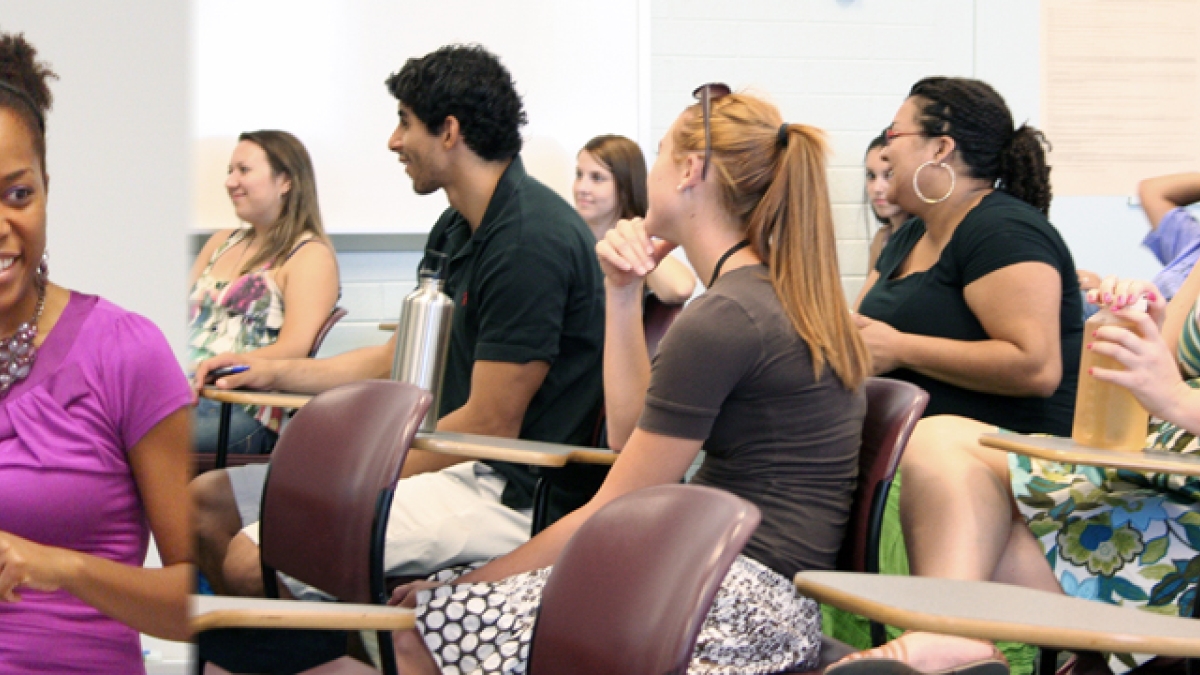Graduate fellowship winners inspired by diversity course

Can a team of graduate students in three diverse fields – accounting, social justice and community resources – brainstorm a solution to the problems of marginalized and culturally oppressed communities around the world?
This theoretical transdisciplinary exercise was part of Diversity across the Curriculum (DAC) a graduate course that is required training for the masters and doctoral recipients of the Reach for the Stars and Doctoral Enrichment Fellowships awarded annually by the Graduate College.
DAC focuses on effective communication of ideas across diverse fields of study. To emphasize commitment to interdisciplinary research and professional development, the program will become the Interdisciplinary Research Colloquium (IRC) in the fall.
“These fellows demonstrate academic excellence, passion and dedication in their field of study, says Jennifer Cason, director of Graduate Support Initiatives at the Graduate College. “DAC allows them to excel by participating in an interdisciplinary environment which promotes scholarly discussion, multiculturalism in higher education, and increases peer mentorship of graduate students from diverse populations.”
The transdisciplinary team mentioned above devised a solution “that is community focused, asset based, and culturally relevant,” says Salina Hazel, who is studying for her accounting master’s in the W.P. Carey School of Business. The team envisioned a co-op business chosen and run by the community itself, helping them become more financially literate and self-sustaining in a way that was culturally relevant to them.
“Group presentations are a good opportunity to see how different disciplines can relate,” says Amie Stockwell, pursuing a master’s degree in structural engineering. “It gave me an opportunity to look at something that I would not normally think about in my discipline and see how my field can relate and even lead to research on an interdisciplinary topic.”
DAC participants not only use the transdisciplinary team approach to problem-solving, they also hone their communication skills by presenting their individual research to the class. The goal is to present their research topic in a way that can be understood by students from other disciplines, as well as the community in general.
“This was the first time that I presented to a group outside my specific discipline,” says Anastasia Todd, who is pursuing a doctorate in women and gender studies. Realizing that her peers in the class might not have a foundation in feminist theory, “I made a point to tone down my jargon – which is important when communicating to the general public.”
DAC is required for all who have received the Graduate College Doctoral Enrichment and Reach for the Stars fellowships. Student presentations will be open to the ASU community and invited guests in fall of 2012. For further details, see graduate.asu.edu/irc.